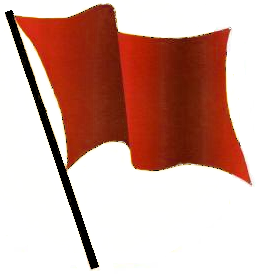Holiday Scams Part 2 Counterfeit Products
The holidays are coming. So is the cash crunch that accompanies them, as well as the desire to get that special someone or someones something they’re longing for.
Something They’ll Love
It was 2012. My husband loved “Pirates of the Caribbean”, and I’d heard rumors that there was a DVD box set out. It’d be a perfect Christmas present for him! Searching at Amazon proved fruitless, so Google was my go-to. I searched on Google, and there it was on a site called HotDvdCollections.com! I was ecstatic! and then a little red flag shot up. Perhaps I’d better look into this just a bit further.

So despite wanting to press the ‘Buy” button right away, I did another search on Google, this time for reviews of HotDvdCollections.com. Although some said that the merchandise was as advertised, many others said the DVD’s were of poor quality, and not just a few said they were absolutely unplayable. I decided to forego the DVD’s until I could find them on a site I knew and trusted.
How to Prevent Counterfeit Product Scams
- If the price seems too good to be true, it probably is. Investigate further.
Check with organizations like the Better Business Bureau to see if the site is listed there, if they’re accredited, the grade they’ve received, and how many complaints there are against the merchant. It isn’t foolproof, unfortunately, as I’ve had the experience of having used vendors that had an A+ grade from them and who were indeed accredited, though I later learned they used fake credentials to obtain it, but it is a start. Nor will international sites be listed.
If the product is on a website with which you’re unfamiliar, use your favorite search engine and do a search for the site, followed by the word “reviews” or “ratings”. Since fake reviews have become a big business, look for these. They’re usually short and generic, ie, “great product”, “, “Just what I wanted”, etc.
A lot of sites you’re familiar with are now allowing so-called “third-party sellers” to use their site to sell merchandise. Amazon, Walmart, and New Egg are examples, but by no means the only ones. I’m unsure how much vetting of these 3rd-party merchants these sites do, but if the merchandise is being offered by one of these third parties, click the link that the site has provided for their store and read the reviews. Also do a search on your favorite search engine, as above.
It’s also important to read warranties provided as well as the third party’s terms and conditions. Some of these sites, for example, provide merchandise that has been upgraded from the original manufacturer’s specifications, which requires breaking the seal to perform, thus voiding the manufacturer’s warranty. You should note what protections are in place, if any, and perhaps buy a protection plan if you’re unsure. Again, these 3rd-party sites may be very reputable–it’s just encumbant on the buyer to check that as well as whether or not a full manufacturer’s warranty is offered and what garantees are in place if not. The good news here is that the sites hosting these 3rd-party stores can serve as a partial backup if things don’t go as intended.Use a payment method that allows lodging a dispute. Peer-to-peer cash applications such as Venmo, Zelle, or CashApp are fine for use with people you already know and trust, but are definitely not suitable for these sorts of transactions. Instead, use a credit card or apps like Paypal, which do have facilities for filing a dispute if things go pear-shaped. Paypal has the additional advantage that your financial details are hidden from the merchant, but not all vendors accept it.
Be particularly wary of using international sites, as the ability to obtain any dispute resolution whatsoever is likely between zip and nil.
Check where the merchandise is being shipped from. In addition to possibly not arriving in time for the holidays, it might also raise that little red flag that things may not be what they seem.
Don’t be fooled by photographs. It’s incredibly easy to copy photos from legitimate sites and paste them into dodgy ones.
By following Vera and Vern’s advice to “always verifies”, you will very likely be able to prevent yourself from becoming the victim of a counterfeit product scam. If you unfortunately do find yourself a victim of such, using a payment method that allows filing a dispute may help you get your money back if the merchandise does not meet specifications. Happy holidays!

Comments
Holiday Scams Part 2 Counterfeit Products — No Comments
HTML tags allowed in your comment: <a href="" title=""> <abbr title=""> <acronym title=""> <b> <blockquote cite=""> <cite> <code> <del datetime=""> <em> <i> <q cite=""> <s> <strike> <strong>